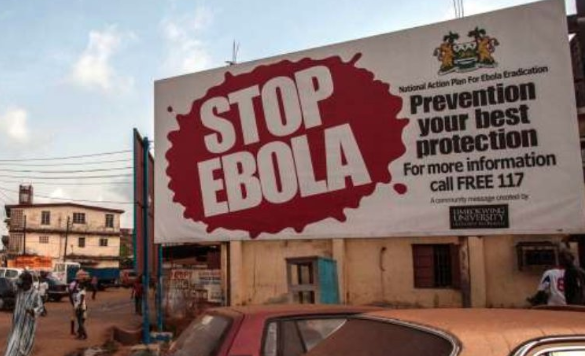
Congo’s Ebola outbreak might be declared global emergency

As the World Health Organisation(WHO)met on Friday on whether to declare the ebola outbreak an international health emergency .
A top Red Cross official raised concerns over a possible regional spread of the regional virus after a new spike in cases.
Emanuele Capobianco, head of health and care at the International Federation of Red Cross and Red Crescent Societies, cited Congolese health ministry statistics showing 40 new cases over two days this week. He called that rate unprecedented in this outbreak.
The Ebola outbreak in Congo announced on August 1 has become the second-deadliest in history, behind the West African one from 2014-16 that killed more than 11 300 people. Congo’s health ministry on Thursday reported 1 206 confirmed and probable cases, including 764 deaths.
To be designated a public health emergency of international concern, a situation must be “serious, unusual or unexpected”, threaten to infect other countries and require “immediate international action”.
However Trish Newport, Doctors Without Borders’ representative in Goma, a major crossroads city close to the outbreak, now says declaring a global emergency wouldn’t necessarily help stop the epidemic.
“Bigger is not necessarily better,” she said. Doctors Without Borders is calling for patients to be treated in existing health centres rather than Ebola-specific clinics: “It’s very clear that people do not like or trust the Ebola centers and they are not coming to be treated.”
Newport said 75% of new Ebola cases have no obvious link to previous patients, meaning that officials have lost track of where the virus is spreading.
Previous global emergencies have been declared for the 2014 Ebola outbreak in Sierra Leone, Liberia and Guinea, the emergence of Zika virus in the Americas and the international attempt to eradicate polio. WHO was criticised for not declaring the 2014 Ebola outbreak an international emergency until nearly 1 000 people had died and the disease had spilled across borders.
Emergency declarations almost always boost global attention and donor funding. In recent weeks, WHO has noted it is woefully short of the $148m it says is needed to fight Ebola for the next six months. It had received only $74m as of mid-March.






